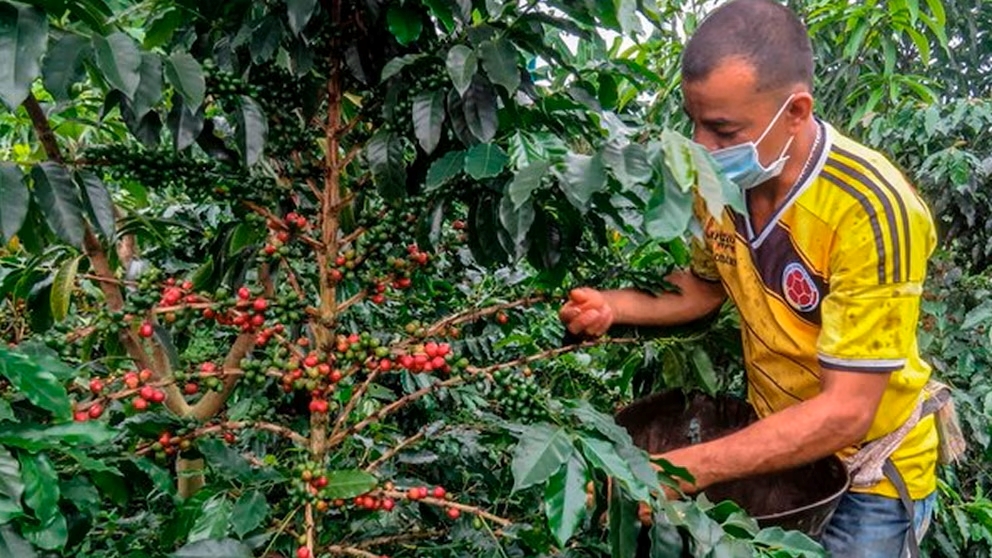Colombian coffee futures are under scrutiny due to challenges in the coffee market and heightened concerns about potential risks to coffee growers’ cooperatives, the National Coffee Fund (FoNC), and the systems ensuring coffee purchase guarantees.
According to the Petro administration, the National Federation of Coffee Growers (FNC) has failed to meet some of its commitments, creating risks to the financial stability of key institutions in the coffee sector.
Significant Price Increases
External market conditions have driven a dramatic increase in Colombian coffee prices. At the beginning of 2024, the price per load was approximately COP 1.4 million, but by January 6, 2025, the price of dry parchment coffee had soared to COP 2.674 million. Meanwhile, the New York C-contract closed at USD 318.60 per pound.
A joint statement from the Ministry of Finance, the Ministry of Trade, Industry and Tourism, the Ministry of Agriculture and Rural Development, and the National Planning Department (DNP) noted that while these rising prices benefit coffee-growing families, they also introduce market challenges, particularly for the futures contracts program initiated in 2017 by the FNC.
Challenges with Futures Contracts
The FNC, which administers the FoNC, has faced delays in fulfilling its futures delivery commitments due to improved coffee prices. These delays pose a significant risk to the financial stability of coffee cooperatives, the FoNC, and the coffee purchasing guarantees.
The government has emphasized its commitment to monitoring the situation closely. Representatives from the Ministry of Finance, the Ministry of Agriculture and Rural Development, the Ministry of Trade, and the DNP are working through the National Coffee Committee to assess the evolving challenges.
Government Demands
The government has called on the FNC to take immediate measures to:
- Strengthen the cooperative coffee system.
- Ensure compliance with futures delivery contracts.
- Maintain purchase guarantees for coffee growers.
- Protect the FoNC’s financial stability against potential losses.
In a recent National Coffee Committee meeting, the government urged the FNC to convene an extraordinary session to evaluate the financial costs, potential losses, and overall health of the FoNC. A detailed action plan was requested to safeguard the cooperative coffee system and the fund’s financial stability.
Global Coffee Market Complexities
Germán Bahamón Jaramillo, the FNC’s General Manager, highlighted the global complexities facing the coffee industry in a recent statement on social media. He pointed to the economic, climatic, and logistical challenges that have created significant pressures on both producing and consuming nations.
According to Bahamón, the COVID-19 pandemic marked a turning point for the global coffee industry. Disruptions in global economies led to unusually high interest rates, prompting exporters to adopt new models, including spot sales (“coffee on sight”), which reduced inventory levels to historic lows in both producing and consuming countries.
While global coffee consumption has remained robust over the past five years, the slow normalization of interest rates has not yet reversed these trends. Additionally, adverse climatic conditions have severely impacted key coffee-producing regions.
Climatic Challenges
Brazil, the world’s largest Arabica producer, has faced extreme weather events such as frost and prolonged droughts, significantly reducing yields and potentially leading to deficits in the next two years. Similarly, Vietnam, the leading Robusta producer, has experienced severe drought, adding pressure to global supply chains.
Although Colombia has been less affected by climatic conditions, the country faces indirect challenges from global supply and demand fluctuations. In 2023, Colombia managed to stabilize its coffee production, and 2024 saw a 21% increase in output. However, the sharp 80% rise in New York coffee prices over the past year has created financial strain on the purchasing system, which now requires substantial economic resources.
Reassurance from the FNC
Despite these challenges, Bahamón assured stakeholders that the FNC, as administrators of the FoNC, is managing the fund responsibly. “We remain committed to safeguarding the fund’s resources and upholding the most important public good: the coffee purchase guarantee,” he stated.
Moving Forward
As the Colombian coffee industry navigates this period of uncertainty, the government and the FNC are under pressure to implement solutions that protect the financial health of the sector, ensure the stability of purchase guarantees, and maintain the livelihoods of coffee-growing families across the country.
